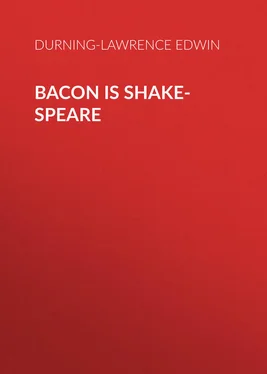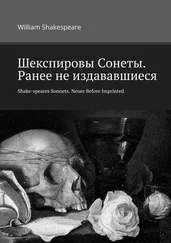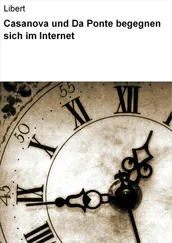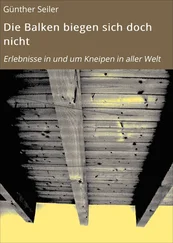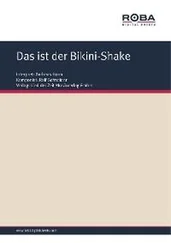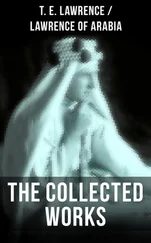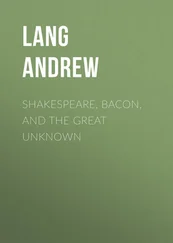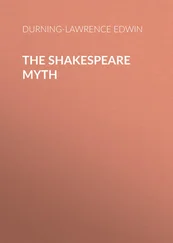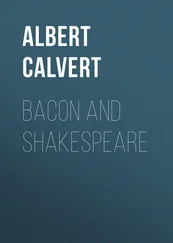Edwin Durning-Lawrence - Bacon is Shake-Speare
Здесь есть возможность читать онлайн «Edwin Durning-Lawrence - Bacon is Shake-Speare» — ознакомительный отрывок электронной книги совершенно бесплатно, а после прочтения отрывка купить полную версию. В некоторых случаях можно слушать аудио, скачать через торрент в формате fb2 и присутствует краткое содержание. Жанр: foreign_antique, foreign_prose, на английском языке. Описание произведения, (предисловие) а так же отзывы посетителей доступны на портале библиотеки ЛибКат.
- Название:Bacon is Shake-Speare
- Автор:
- Жанр:
- Год:неизвестен
- ISBN:нет данных
- Рейтинг книги:5 / 5. Голосов: 1
-
Избранное:Добавить в избранное
- Отзывы:
-
Ваша оценка:
- 100
- 1
- 2
- 3
- 4
- 5
Bacon is Shake-Speare: краткое содержание, описание и аннотация
Предлагаем к чтению аннотацию, описание, краткое содержание или предисловие (зависит от того, что написал сам автор книги «Bacon is Shake-Speare»). Если вы не нашли необходимую информацию о книге — напишите в комментариях, мы постараемся отыскать её.
Bacon is Shake-Speare — читать онлайн ознакомительный отрывок
Ниже представлен текст книги, разбитый по страницам. Система сохранения места последней прочитанной страницы, позволяет с удобством читать онлайн бесплатно книгу «Bacon is Shake-Speare», без необходимости каждый раз заново искать на чём Вы остановились. Поставьте закладку, и сможете в любой момент перейти на страницу, на которой закончили чтение.
Интервал:
Закладка:
But as I wrote to the City authorities and the British Museum authorities, it would be impossible to discover a scoundrel who would venture to perjure himself and falsely swear that it was even remotely possible that the two supposed signature of Wm. Shakespeare could have been written at the same time, in the same place, with the same pen, and the same ink, by the same hand .
They are widely different, one having been written by the law clerk of the seller, the other by the law clerk of the purchaser.
According to the law of England, anyone may (by request) attach any person's name to any document, and if that person touch it, any third person may witness it as a signature.
Some years ago by the courtesy of the Corporation of London, the
Librarian and the Chairman of the Library Committee carried the Purchase
Deed to the British Museum to place it side by side with the Mortgage
Deed there.
After they had with myself and the Museum Authorities most carefully examined the two deeds, the Librarian of the City Corporation said to me, there is no reason to suppose that the Corporation deed has upon it the signature of Wm. Shakespeare, and the British Museum Authorities likewise told me that they did not think that the Museum Mortgage Deed had upon it a signature of William Shakespeare.
The more you examine the whole five the more you will be certain, as the writer is, after the most careful study of the Will and of the Deeds, that not one of the five writings is a "signature," or pretends to be a "signature," and that therefore there is a probability, practically amounting to a certainty, that the Stratford Actor could not so much as manage to scrawl his own name.
No! We possess not a scrap of writing, not even an attempt at a signature, [see also Chapter XIV., p. 161] that can be reasonably supposed to be written by the Stratford gentleman .
He is styled "gentle Shakespeare": this does not refer to anything relating to his character or to his manners but it means that possessing a coat of arms he was legally entitled to call himself a "gentleman."
Chapter IV
Contemporary Allusions to Shackspere.
Shakspeare the Actor purchased New Place at Stratford-on-Avon in 1597 for £60 and he became a "gentleman" and an esquire when he secured a grant of arms in 1599.
How did the stage "honour" the player who had bought a coat of arms and was able to call himself a "gentleman"?
Three contemporary plays give us scenes illustrating the incident:
1st. Ben Jonson's "Every man out of his humour" which was acted in 1599 the very year of Shakspeare's grant of arms.
2nd. Shakespeare's "As you like it" which was entered at Stationers' Hall in 1600, although no copy is known to exist before the folio of 1623.
3rd. "The Return from Parnassus" which was acted at St. John's College, Cambridge in 1601, though not printed till 1606.
In addition to these three plays, there is a fourth evidence of the way in which the Clown who had purchased a coat of arms was regarded, in a pamphlet or tract of which only one copy is known to exist. This tract which can be seen in the Rylands Library, Manchester, used to be in Lord Spencer's library at Althorp, and is reprinted by Halliwell-Phillipps in "Outlines of the Life of Shakespeare," 1889, Vol. I, pages 325-6.
[Illustration: PLATE XV. Bacon's Crest from the Binding of a
Presentation Copy of the Novum Organum, 1620.]
To commence with Ben Jonson's "Every man out of his humour." The clown who had purchased a coat of arms is said to be the brother of Sordido (a miser), and is described as an "essential" clown (that is an uneducated rustic), and is styled Sogliardo which is the Italian for the filthiest possible name.
The other two characters in the scene (act iii. sc. I) are Puntarvolo who, as his crest is a Boar , must be intended to represent Bacon; 2 2 Through the whole play the fact that Puntarvolo represents Bacon is continually apparent to the instructed reader. Note especially Act II., Scene 3, where Puntarvolo addresses his wife, who appears at a window, in a parody of the address of Romeo to Juliet. Again in Act II., Scene 3, Carlo Buffone calls Puntarvolo "A yeoman pheuterer." Pheuter or feuter means a rest or supportfor a spear – which is informing.
and Carlo Buffone who is a buffoon or jester.
Enter Sogliardo (the filth), who is evidently the Stratford Clown, who has just purchased a coat of arms: —
Actus Tertius, Scena Prima,
Sogliardo, Punt., Carlo.
Sog . Nay I will haue him, I am resolute for that, by this Parchment Gentlemen, I haue ben so toil'd among the Harrots [meaning Heralds ] yonder, you will not beleeue, they doe speake i' the straungest language, and giue a man the hardest termes for his money, that euer you knew.
Car . But ha' you armes? ha' your armes?
Sog . Yfaith, I thanke God I can write myselfe Gentleman now, here's my Pattent, it cost me thirtie pound by this breath.
Punt . A very faire Coat, well charg'd and full of Armorie.
Sog . Nay, it has, as much varietie of colours in it, as you haue seene a Coat haue, how like you the Crest, Sir?
Punt . I vnderstand it not well, what is't?
Sog . Marry Sir, it is your Bore without a head Rampant.
Punt . A Bore without a head, that's very rare.
Car . I, [Aye] and Rampant too: troth I commend
the Herald's wit, he has deciphered him well:
A Swine without a head, without braine, wit,
anything indeed, Ramping to Gentilitie. You
can blazon the rest signior? can you not?
…
…
Punt . Let the word be, Not without mustard , your
Crest is very rare sir.
Shakspeare's "word" that is his "motto" was – non sanz droict – not without right – and I desire the reader also especially to remember Sogliardo's words "Yfaith I thanke God" a phrase which though it appears in the quartos is changed in the 1616 Ben Jonson folio into "I thank them " which has no meaning.
Next we turn to Shakespeare's "As you like it." This play though entered at Stationers' Hall in 1600 and probably played quite as early is not known in print till it appeared in the folio of 1623. The portion to which I wish to refer is the commencement of Actus Quintus, Scena Prima.
Clow . We shall finde a time Awdrie , patience gentle
Awdrie.
Awd . Faith the priest was good enough, for all the
olde gentlemans saying.
Clow . A most wicked Sir Oliver, Awdrie , a most vile Mar-text. But Awdrie , there is a youth heere in the forrest layes claime to you.
Awd . I, I know who 'tis: he hath no interest in mee in the world: here comes the man you meane.
(Enter William)
Clo . It is meat and drinke to me to see a clowne, by my troth, we that haue good wits, haue much to answer for: we shall be flouting: we cannot hold.
Will . Good eu'n Audrey.
Awd . God ye good eu'n William .
Will . And good eu'n to you sir.
Clo . Good eu'n gentle friend. Couer thy head, couer thy head: Nay prethee bee couer'd. How olde are you Friend?
Will . Fiue and twentie Sir.
Clo . A ripe age: Is thy name William ?
Will . William , Sir.
Clo . A faire name. Was't borne i' the Forrest heere?
Will . I [Aye] Sir, I thanke God.
Clo . Thanke God: A good answer: Art rich?
Will . 'Faith Sir, so, so.
Читать дальшеИнтервал:
Закладка:
Похожие книги на «Bacon is Shake-Speare»
Представляем Вашему вниманию похожие книги на «Bacon is Shake-Speare» списком для выбора. Мы отобрали схожую по названию и смыслу литературу в надежде предоставить читателям больше вариантов отыскать новые, интересные, ещё непрочитанные произведения.
Обсуждение, отзывы о книге «Bacon is Shake-Speare» и просто собственные мнения читателей. Оставьте ваши комментарии, напишите, что Вы думаете о произведении, его смысле или главных героях. Укажите что конкретно понравилось, а что нет, и почему Вы так считаете.
